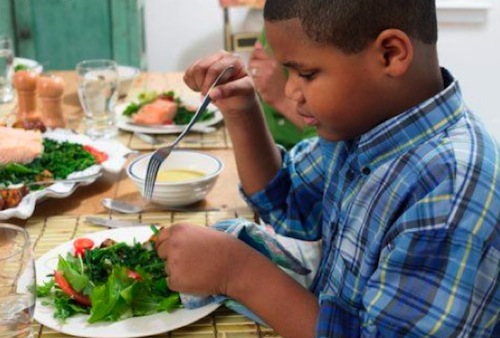- Empty cart.
- Continue Shopping
How to Manage Childhood Food Allergies

Childhood food allergies are a growing concern for parents worldwide. These allergies can range from mild to severe and can significantly impact a child’s quality of life. Managing food allergies in children involves more than just avoiding certain foods; it requires a holistic approach that includes education, preparation, and vigilance.
Understanding Food Allergies in Children
Food allergies occur when the immune system mistakenly identifies a food protein as harmful and triggers a defensive response. Common allergens in children include:
- Milk
- Eggs
- Peanuts
- Tree nuts
- Soy
- Wheat
- Fish
- Shellfish
Diagnosis and Medical Consultation
Allergy Testing
If you suspect your child has a food allergy, consult a healthcare provider for proper diagnosis. This often involves skin-prick tests, blood tests, or oral food challenges.
Allergist Consultation
An allergist can provide a comprehensive management plan, which may include an emergency action plan for severe reactions, known as anaphylaxis.
Practical Tips for Managing Food Allergies
Educate Your Child
Teach your child about their allergy and the importance of avoiding certain foods. Make sure they know how to read food labels and ask about ingredients when eating out.
Create an Allergy-Friendly Home
- Keep allergens out of the house or clearly labeled in a separate area.
- Use separate cooking utensils for allergen-free cooking.
School and Social Events
- Inform teachers, school nurses, and caregivers about your child’s allergies.
- Provide an allergy action plan and necessary medications, such as antihistamines or epinephrine auto-injectors, to the school.
- Discuss food arrangements for social events like birthday parties in advance.
Emergency Preparedness
Always carry an emergency kit containing antihistamines and an epinephrine auto-injector. Make sure caregivers and older siblings know how to use it.
Dietary Management
Alternative Foods
Look for allergen-free alternatives to ensure your child still gets essential nutrients. For example, almond milk can replace cow’s milk, and chickpea flour can be an alternative to wheat flour.
Reading Labels
Always read food labels carefully. Manufacturers often change ingredients, and cross-contamination is a possibility.
Dining Out
When dining out, speak directly to the chef or manager about your child’s allergies to ensure the meal is prepared safely.
Emotional Support
Food allergies can be emotionally taxing for children, who may feel isolated or different from their peers. Open communication, involvement in food choices, and counseling can help them cope better.
In summary, managing childhood food allergies is a multi-faceted challenge that requires constant vigilance. From diagnosis and medical consultation to practical everyday measures, parents must be proactive in safeguarding their children from allergens. By taking a comprehensive approach that includes education, dietary management, and emotional support, you can help your child lead a fulfilling life, despite the limitations of food allergies.








